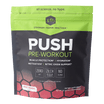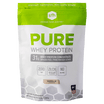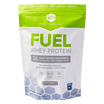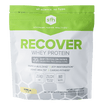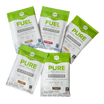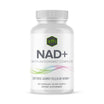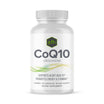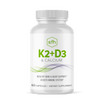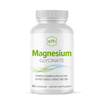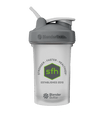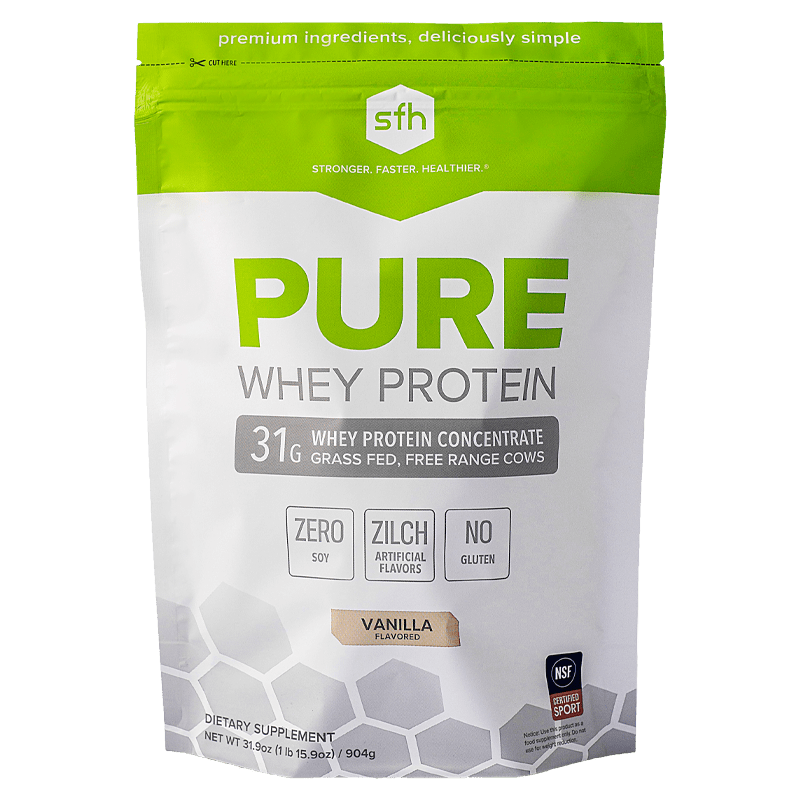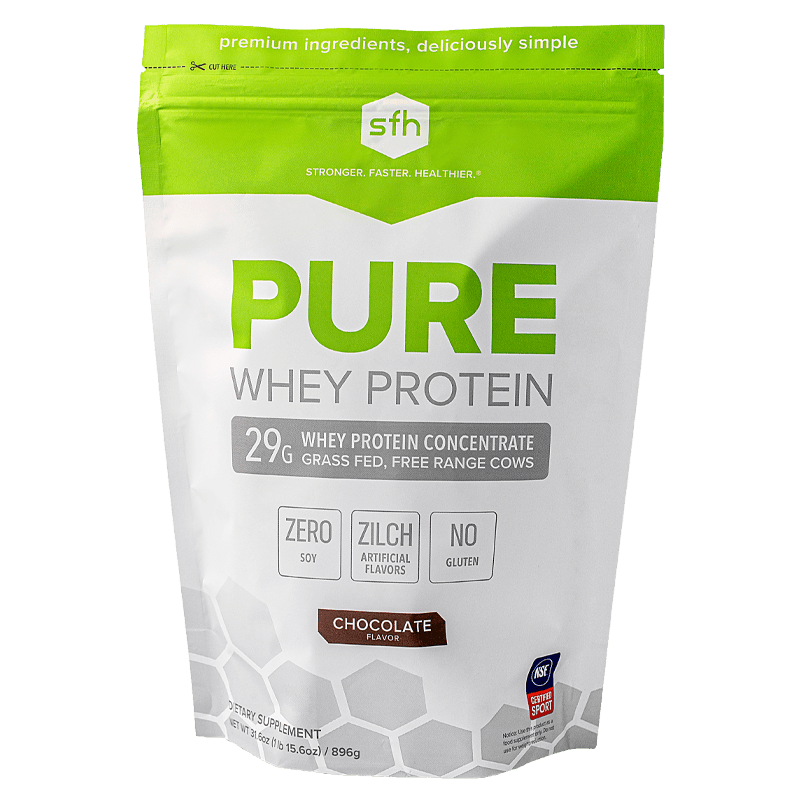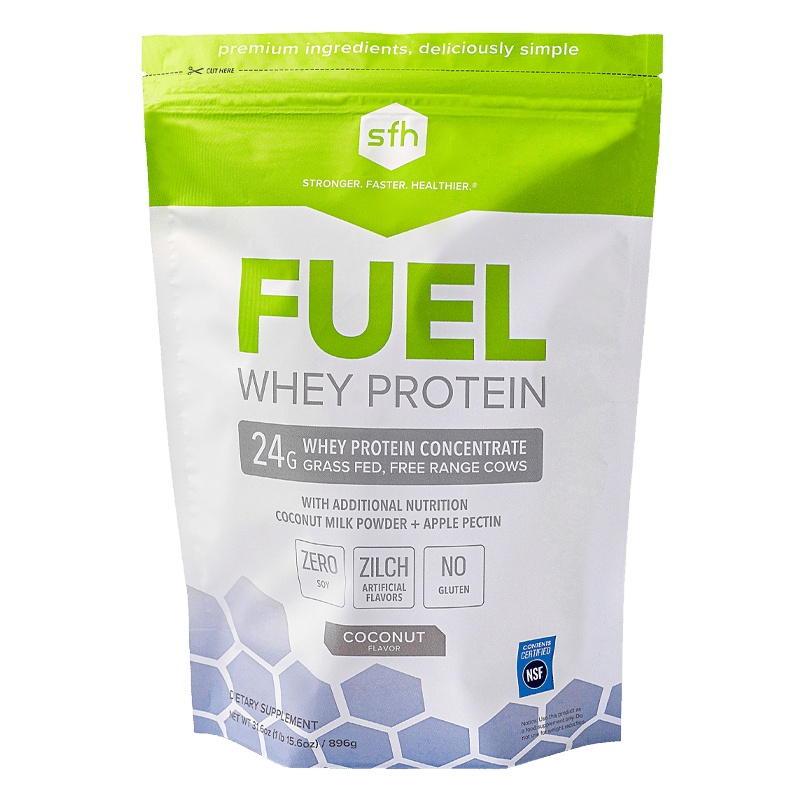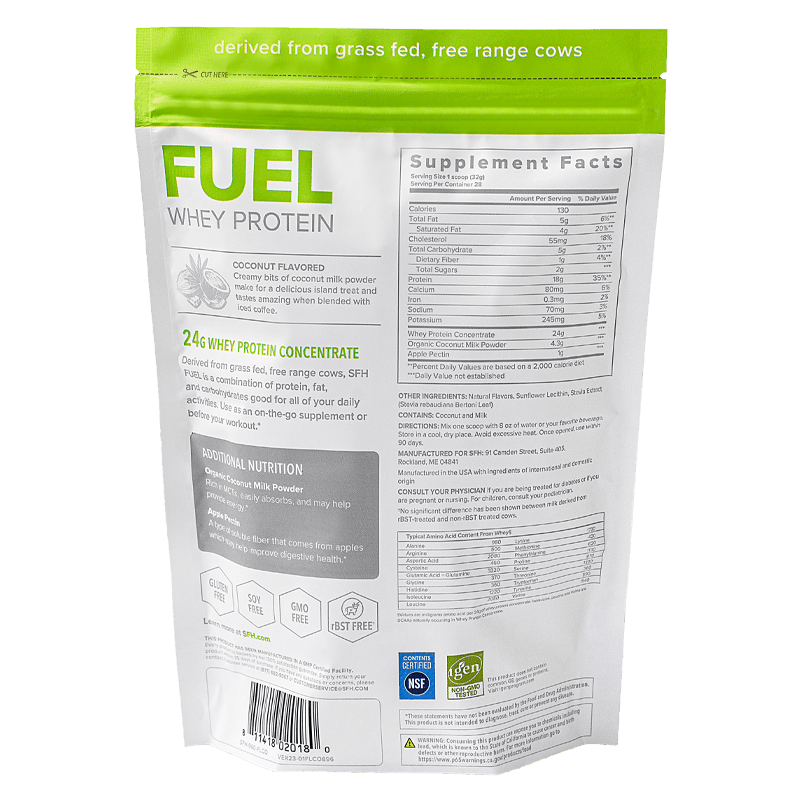Protein Sources: What's The Difference?
As any athlete or gym buff can tell you, protein is one of the most important components of any diet. But with all the different protein powders and supplements out there, you might be wondering, “Which protein source is the best?” Let’s talk about it! (Spoiler alert: we’re big fans of high-quality whey concentrates.)
Why Use A Protein Supplement?
Think of protein as the “building blocks” of your body. They help create organs, skin, hormones, enzymes, and neurotransmitters. Protein also helps muscles repair after a tough workout, which is why so many athletes look to bulk up their protein intake!
When it comes to protein and making gains, it’s also really important to consider the amino acids, or the smaller components that make protein. Three amino acids called branched-chain amino acids (BCAAs) are especially important for muscle synthesis. These three BCAAs are leucine, isoleucine, and valine. While all are important, leucine is especially crucial for stimulating muscle growth.
Good protein supplements let you increase your protein intake, which is great for making gains. They’re also concentrated, so you get more pure protein with fewer other ingredients.
Why Whey?
Whey is a complete protein source isolated from milk. It’s an easy way to add several grams of protein to your diet, which is always good news for people who want to build muscle. It’s also absorbed faster than many other protein sources.
Most importantly, whey contains plenty of nutrients, including the all-important BCAAs that athletes and gym-goers need. In fact, whey proteins have the highest BCAA content when compared to several other protein sources! A good whey protein, like SFH’s PURE and FUEL, has plenty of leucine to help support your muscle synthesis after a workout.
Final benefit: adding a protein supplement like whey powder to your daily regimen can help keep you fuller for a longer, which is great news if you’re trying to minimize your calorie intake.
The Different Kinds of Whey Proteins
Not all whey supplements are created equal. Let’s break down some of the most common forms of whey that you might find while shopping for supplements.
Whey Concentrate
Whey concentrate is a superior protein source: it’s easily absorbed and full of nutrients like BCAAs.
It’s also much less processed than other whey forms. When making whey isolate or hydrolyzed whey, manufacturers use heat or acid to break down the protein and concentrate it. Unfortunately, this usually means that denatured protein sources like this are stripped of many important nutrients.
Meanwhile, non-denatured whey concentrates, like those used in SFH’s whey, are made with cold filtration processes instead. This lets the protein remain intact and chock-full of bioactive peptides, antioxidants, and other immune-boosting nutrients your body likes.
Whey Isolates
Whey isolates are filtered even more than concentrate, eliminating most of the other nutrients like lactose and healthy fats. Because of this, whey isolates are usually a better choice for people who are lactose intolerant. But while whey isolates may have more protein per gram than concentrate, it’s also more denatured and stripped of its naturally occurring BCAAs.
Hydrolyzed Protein
Hydrolyzed whey has been broken down even more by the manufacturer into smaller chains called peptides. This makes it easier for your body to absorb. However, the trade-off is that it has even fewer BCAAs and other nutrients than other protein sources.
Other Kinds of Protein
Plant Protein
While plant protein sources tend to be less complete than animal protein, plant-based protein from sources like peas or soy is also available for plant-based eaters. SFH’s Plant Protein is made with yellow pea protein, which is easily digestible and contains 9 essential amino acids including BCAAs to help support vegan and vegetarian athletes in their fitness goals.
Casein protein
Milk is made up 20% whey, but the remaining 80% is casein. A major difference here is that casein digests slowly, while whey is absorbed much more quickly. Casein can keep you fuller for longer and provide some muscle growth, but it isn’t as effective for making gains as whey.
How Much Protein Do You Need?
The RDA (Recommended Dietary Allowance) for protein is 0.8 grams of protein per kilogram of your body weight. This is the bare minimum that your body needs to function normally.
However, this might not be your ideal protein intake if you’re trying to gain muscle. If you’re trying to make gains and augment your resistance training, the evidence suggests that you should be eating between 1.6–2.2 grams of protein per kilogram of body weight.
The Bottom Line: If You’re Trying To Make Gains the Healthy Way, Go For Whey.
Whey is a pure, complete, and healthy source of protein. It’s also quickly absorbed and full of leucine, the amino acid that’s so crucial for muscle synthesis.
Remember, not all whey proteins are made the same. For the most nutritionally sound option, non-denatured concentrate is the way to go. In addition, avoid protein powders that are labeled as “proprietary blends,” since these blends often disguise a combination of inferior ingredients.
SFH’s PURE and FUEL Whey powders are sourced from grass-fed, free-range cows with no growth hormones. They’re also made with non-GMO sunflower lecithin to keep your protein shake from clumping. Other brands use GMO soy lecithin, which some studies have linked to an increased risk of cardiovascular events. With SFH protein, every scoop adds high-quality, natural amino acids to your regimen to help you get the most out of each workout.
*These statements have not been evaluated by the Food and Drug Administration. These products are not intended to diagnose, treat, cure or prevent any disease.
Sources:
- Garlick, P. J. (2005). The Role of Leucine in the Regulation of Protein Metabolism. Journal of Nutrition, 135(6), 1553S-1556S. https://doi.org/10.1093/jn/135.6.1553s
- Hoffman, J. R. (2004, September 1). Protein – Which is Best? PubMed Central (PMC). https://www.ncbi.nlm.nih.gov/pmc/articles/PMC3905294/
- Oberoi, A., Giezenaar, C., Jensen, C., Lange, K., Hausken, T., Horowitz, M., Chapman, I., & Soenen, S. (2020). Acute effects of whey protein on energy intake, appetite and gastric emptying in younger and older, obese men. Nutrition & Diabetes, 10(1). https://doi.org/10.1038/s41387-020-00139-8
- Stokes, T., Hector, A. J., Morton, R. A., McGlory, C., & Phillips, S. M. (2018). Recent Perspectives Regarding the Role of Dietary Protein for the Promotion of Muscle Hypertrophy with Resistance Exercise Training. Nutrients, 10(2), 180. https://doi.org/10.3390/nu10020180
- Tang WH;Wang Z;Levison BS;Koeth RA;Britt EB;Fu X;Wu Y;Hazen SL; “Intestinal Microbial Metabolism of Phosphatidylcholine and Cardiovascular Risk.” The New England Journal of Medicine, U.S. National Library of Medicine, https://pubmed.ncbi.nlm.nih.gov/23614584/.


